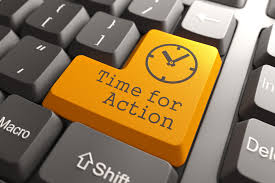AnxietyPath is a safe community environment supported by professional counselors. We are a free self help destination to receive support and guidance for recovery from anxiety and phobias
Anxiety Disorders Are A Learned Behavior

Anxiety disorders are a learned behavior. Therefore, recovery is created by making changes in our behavior. Learning new habits. Creating a new conditioned response to our triggers. Unfortunately creating changes is often difficult for many reasons.
The number one reason that I think cause people to fail or give up, is impatience. People typically want to change, and they want it NOW. Granted, I am no different, so when I say this I speak from experience. Especially when it comes to anxiety disorders and creating recovery. By the time we begin to work on recovery we are already suffering so much and it is so painful, that naturally, we want to stop the way we are feeling as quickly as possible.
Recovery is not measured in days and weeks, but rather it is measured in months and years. This does not say that we cannot begin to feel different fairly quickly, because we can. Actually, we can begin to feel a change within a few weeks of steady practice. But to create the ultimate change that we seek will take longer. Being that anxiety disorders are a learned behavior, it will take time to change our behavior.
Therefore we need to look at recovery as a long-term lifestyle change. I’ve been formally working on my recovery for the past 23+ years, and I still am working on my recovery. But this is not a bad thing. Working on recovery does not imply that it’s been a negative in my life – absolutely not! Working on my recovery for all these years has been nothing but a positive in my life; primarily because how it affected my anxiety, but also how it has touched every part of my life.
When we first start working on recovery we are already physically, mentally and emotionally exhausted. The idea of having to put more effort out which is required to create a recovery, to begin with, is daunting. We are already exhausted, how can we possibly put out any additional effort?
When we begin to make some changes in our life such as practicing the tools & techniques and self-care, we actually begin to have more energy. Using the tools & techniques will start to break up the anxious thinking, and we will not be as exhausted by our anxiety as much. Granted, we may not feel this right away, especially if we are still hyper-focused on our anxiety, but it’s happening whether we know it or not. Even a few minutes a day of less anxiety on average will accumulate and offer us additional energy.
The approach to self-care is centered around the basics. Getting enough quality sleep. Eating right and drinking enough water. Just these things alone, to begin with, are the foundation of self-care and will have a huge impact on our energy levels.
Keep in mind that anxiety disorders are a learned behavior. Our existence becomes one of a cycle of suffering. Typically we fall into a false sense of comfort by offering ourselves distractions and allowing us an excuse to stop caring for ourselves.
A very common area in which this is true is eating. Eating is typically a big problem; our comfort foods are usually high in sugar, fats or carbohydrates. We eat for comfort, but then afterward physically we feel “not well”. Bloated, our sugar levels spike & then fall, we lose energy, we feel sluggish, and these feelings aggravate our anxiety disorders resulting in higher levels. So we become more anxious and then we seek comfort again in the same foods that caused the feelings we tried to escape from, to begin with. Creating a cycle of suffering. We need to remember that anxiety disorders are a learned behavior, we cannot continue to reinforce this behavior. Recovery is created by breaking old habits.
Another very typical excuse for not caring for ourselves is “resting”. When anxiety levels are high, people tend to believe that rest is required. We may have had a long week at work/school, and whether or night or on the weekends, we will use any free time to rest. Usually resting involves watching television or movies, listening to music and often accompanied by erratic sleeping habits. Staying up late at night followed by sleeping late in the morning throws off our natural rhythm. This too is likely to cause higher levels of anxiety.
I can go on and on about self-care and how typically poor habits continue to reinforce our anxious behavior. But you get the idea for now. This is a subject that I have touched upon before, and I will again (many times).
There are many things we have zero control over, but the things we do have control over is where we have to begin to take back our lives.
If we do not begin, we will never recover. The only place where we can begin is right where we are, with what we have – right now! There is no point in waiting for a “perfect” time to start. There will always be obstacles in life that we can justify as reasons to delay the implementation of effort.
Fear To Fearless
Categories
© 2020 AnxietyPath Powered by G SOUL INC